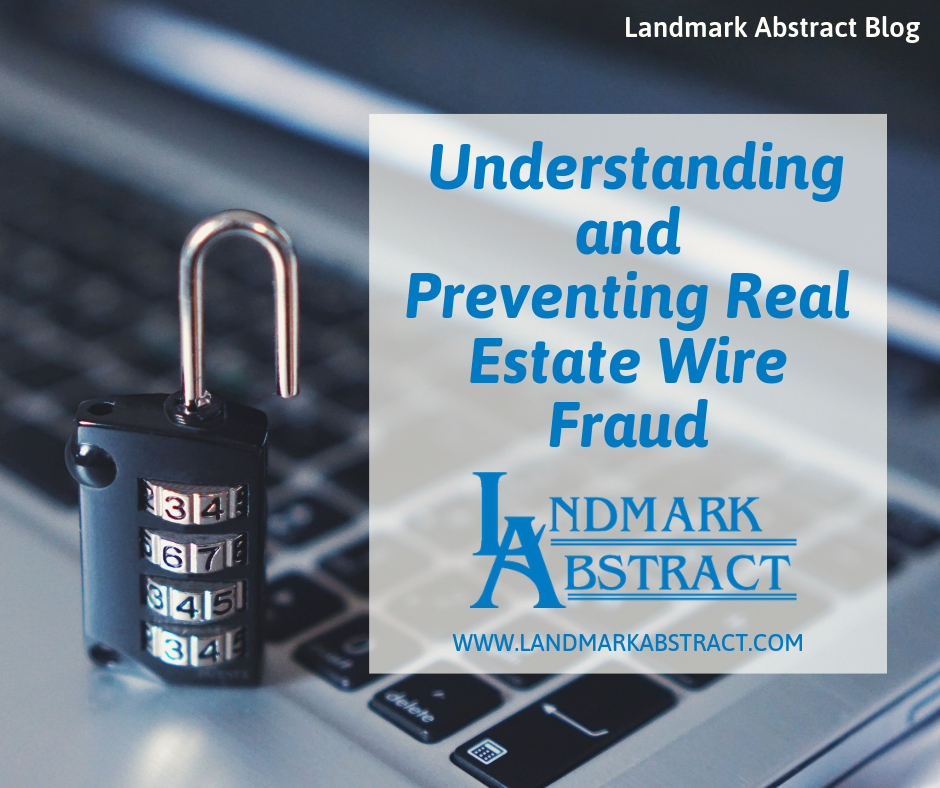Estimated reading time: 4 minutes

Introduction
This important case study has some excellent tip on preventing real estate wire fraud. Also, we here at Landmark Abstract take action to protect all parties involved in a real estate transaction.
Firstly, the Federal Bureau of Investigation estimates criminals attempted to divert more than $90 billion in wire fraud transfers between June 2016 and December 2018. These “trick and transfer” scams are at the center of Business Email Compromise (BEC) epidemic that threatens nearly all businesses in the United States. The real estate sector has become a prime target for cyber perpetrators. Everyone in a transaction, from the buyer, seller, bank to the title agency, is at risk for wire fraud.
In a new ebook entitled “Clear to Close: The Complete Guide to Understanding and Preventing Real Estate Wire Fraud,” author Thomas Cronkright II, co-founder and CEO of CertifID, provides business owners and consumers information on how wire fraud scams work. Additionally, he outlines simple steps to achieve a high level of protection.
Clear to Close: The Complete Guide to Understanding and Preventing Real Estate Wire Fraud
How Scammers Work
Scammers move fast, and in the United States, buyers continue to be the target of wire fraud attacks. Posing as a trusted party in a transaction, scammers divert earnest money deposits and cash to close wire transfers. These cyber perpetrators are stealing the life savings of buyers in an instant. Once the money is transferred to a fraudulent account, it is hard to get it back. While wire fraud directly affects the party sending funds to the fraudulent account, all the transaction participants stand to lose if they fail to protect the person who was scammed. Cronkright says the litigation landscape around the issue is active and new standards of care are evolving based on court decisions.
“Real estate is a $33 trillion industry, which makes it the hottest market for fraud, and because the transactions can be so large, scammers only need one or two successes to earn significant amounts of money,” Cronkright said. “Prevention starts with protection, and in my new eBook, I outline the simple steps that banks, title companies, and individuals can take to stop fraudsters before they can even come close to a transaction.”
Personal Experience
Unfortunately, Cronkright knows first-hand how deeply wire fraud can damage an individual’s personal finances and a company’s reputation. As CEO of Sun Title, he and his business partner, Lawrence Duthler, experienced a significant wire fraud incident. At the same time, they realized other banks and title companies had the same levels of vulnerability. In response, they educated themselves on the best ways to protect their customers and launched CertifID. CertifID is a real-time identity verification platform that allows individuals to send and confirm bank credentials before funds are moved.
Inside the eBook
In the ebook, Cronkright spells out the first steps of wire fraud prevention and how to stop fraudsters from gaining access to transaction-level information. The ebook explains:
- The size and scope of the wire fraud epidemic
- Why real estate transactions are a top target for cybercrime syndicates
- How it affects all parties in a transaction
- Questions to determine if your insurance covers you for loss
- How to recover if a wire fraud occurs
Conclusion
“Wire fraud remains a significant concern in real estate transactions and committing to education and adopting preventative measures is the best way to drastically eliminate risk, exposure and protect the business and customers from loss,” said Cynthia Blair, founding member of the law firm Blair Cato Pickren Casterline. “This ebook is the first of its kind in the industry and serves as an example of the type of information that should be shared with all parties in a real estate transaction.”
Courtesy of American Land Title Association and CertifID.
Learn More:


Leave a Reply
You must be logged in to post a comment.